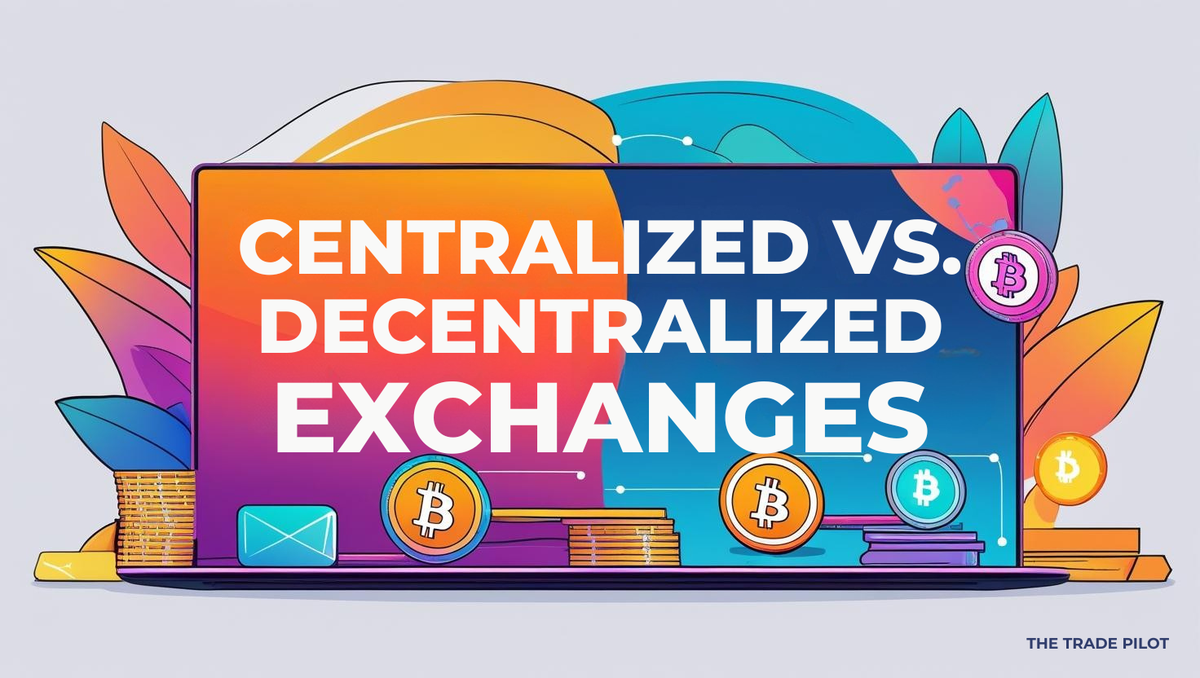When you first step into the world of crypto trading, one of the biggest decisions you’ll face is where to trade: on a centralized exchange (CEX) or a decentralized exchange (DEX). Each has its own set of features, benefits, and trade-offs. This beginner-friendly guide will help you understand how they differ, so you can choose the platform that suits your goals and risk tolerance.
What Is a Centralized Exchange (CEX)?
A centralized exchange is a trading platform operated by a company or organization. When using a CEX, users deposit their funds into wallets controlled by the exchange. The platform handles order matching, fund storage, and trade execution.
Some of the most popular CEXs include Binance, Coinbase, Kraken, and KuCoin.
Centralized exchanges are known for their user-friendly interfaces, quick transactions, and strong liquidity. They often provide services such as fiat-to-crypto gateways, customer support, margin trading, and advanced trading tools.
However, CEXs come with downsides. Since they hold user funds, there's a risk of hacks or withdrawal freezes. They also require account verification (KYC) and comply with regulations that may restrict usage in some regions.
What Is a Decentralized Exchange (DEX)?
A decentralized exchange operates through blockchain-based smart contracts, allowing users to trade directly with one another — peer-to-peer — without intermediaries. Users connect their own wallets, like MetaMask or Trust Wallet, and execute trades without transferring custody of their funds.
Popular DEXs include Uniswap, PancakeSwap, SushiSwap, and 1inch.
DEXs prioritize privacy and decentralization. They usually don’t require account creation or KYC, and users retain full control of their assets throughout the process.
That said, they can be harder to use, especially for beginners. The interface may be less polished, the risk of smart contract bugs exists, and low-liquidity tokens may be difficult to trade efficiently. There’s also no customer support to assist with errors or lost funds.
Main Differences Between CEXs and DEXs
While both allow you to trade cryptocurrencies, they operate very differently. Here are the most important differences explained:
Custody: CEXs take custody of your crypto during trades, while DEXs allow you to maintain full control at all times.
Ease of Use: Centralized exchanges are designed for beginners with easy signup, fiat purchases, and customer support. DEXs usually require some crypto experience, such as managing wallets and gas fees.
KYC and Regulations: CEXs follow regulations and often require identity verification. DEXs generally don't require KYC, offering more anonymity.
Liquidity and Speed: CEXs offer high liquidity and fast trade execution. DEXs may struggle with speed and depth for smaller or newer tokens.
Security: DEXs are considered safer from centralized hacks since they don't hold user funds. However, they’re vulnerable to smart contract bugs. CEXs are often targets for attackers but offer compensation or recovery options.
Support and Features: CEXs offer customer service, stop losses, futures, and advanced analytics. DEXs are minimalistic and often limited to swaps.
When to Use a Centralized Exchange
Use a CEX if:
- You’re new to crypto and want a beginner-friendly platform.
- You want to buy crypto using a credit card, bank account, or fiat currency.
- You need customer support and a more familiar trading experience.
- You’re interested in margin trading or futures.
When to Use a Decentralized Exchange
Use a DEX if:
- You value privacy and want to avoid KYC.
- You prefer full control of your assets and private keys.
- You want to access early-stage or smaller tokens that aren’t listed on CEXs.
- You’re comfortable using Web3 wallets and decentralized apps.
The Trade Pilot and Centralized Exchanges
The Trade Pilot currently integrates with Binance, one of the largest centralized exchanges. Binance’s high liquidity, fast execution, and stable infrastructure make it ideal for automated strategies.
While The Trade Pilot doesn’t yet support DEXs, this may change in the future as decentralized platforms improve in speed, functionality, and user experience.
Final Thoughts
Both centralized and decentralized exchanges play an important role in the crypto ecosystem. Choosing the right one depends on your preferences, goals, and technical comfort.
Many traders use both — CEXs for ease and liquidity, DEXs for privacy and access to niche tokens. Try both types with small amounts to see what works best for you.

